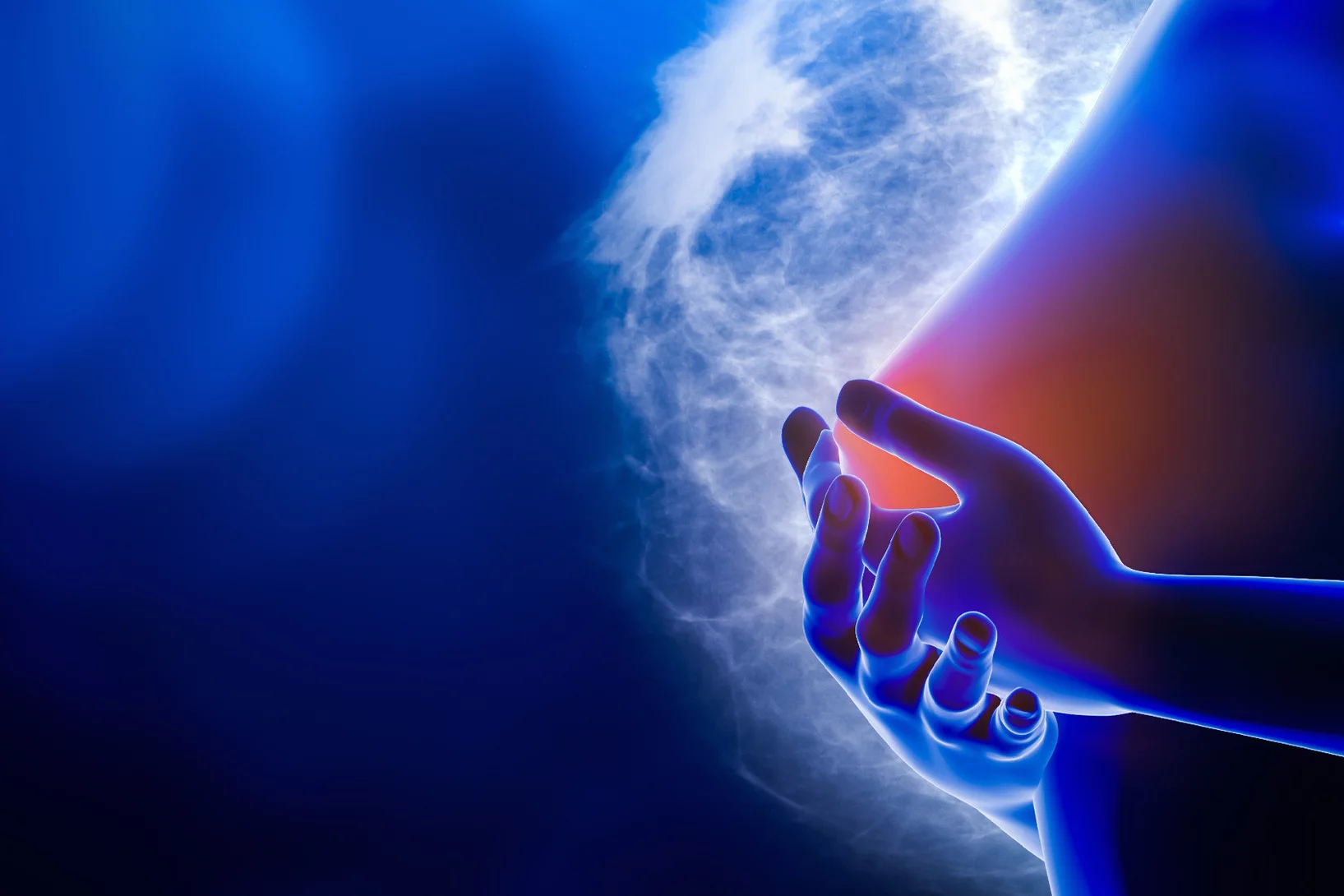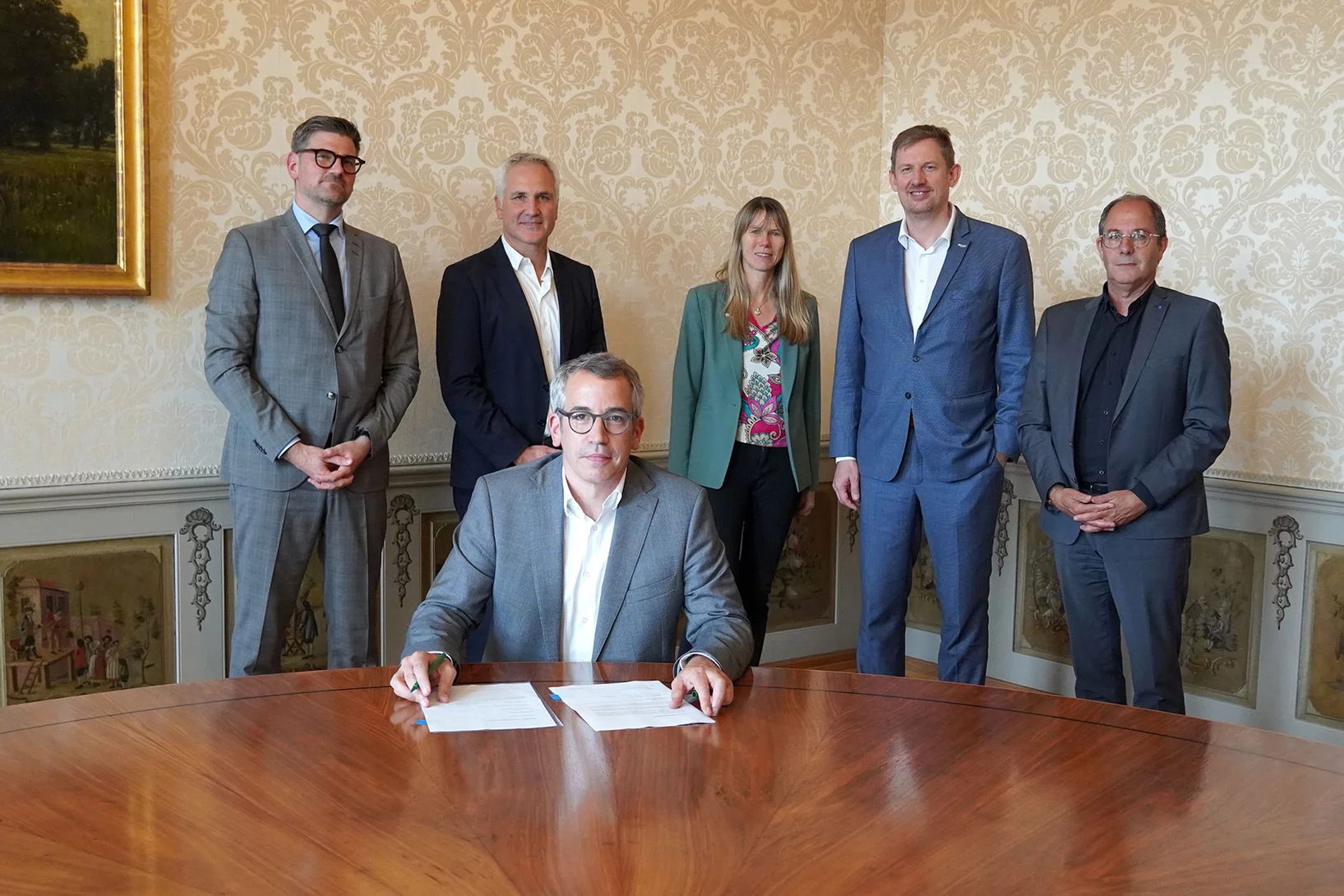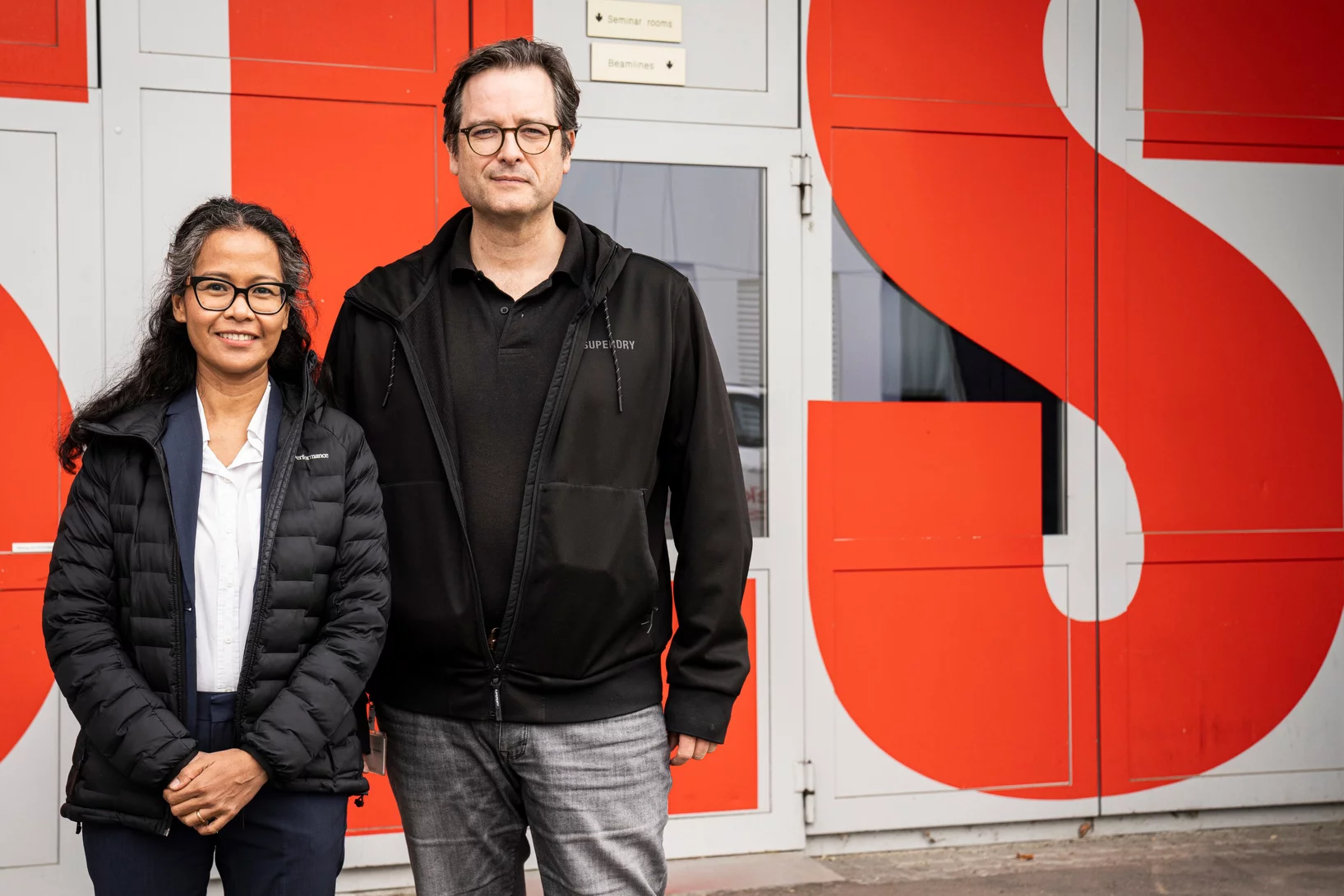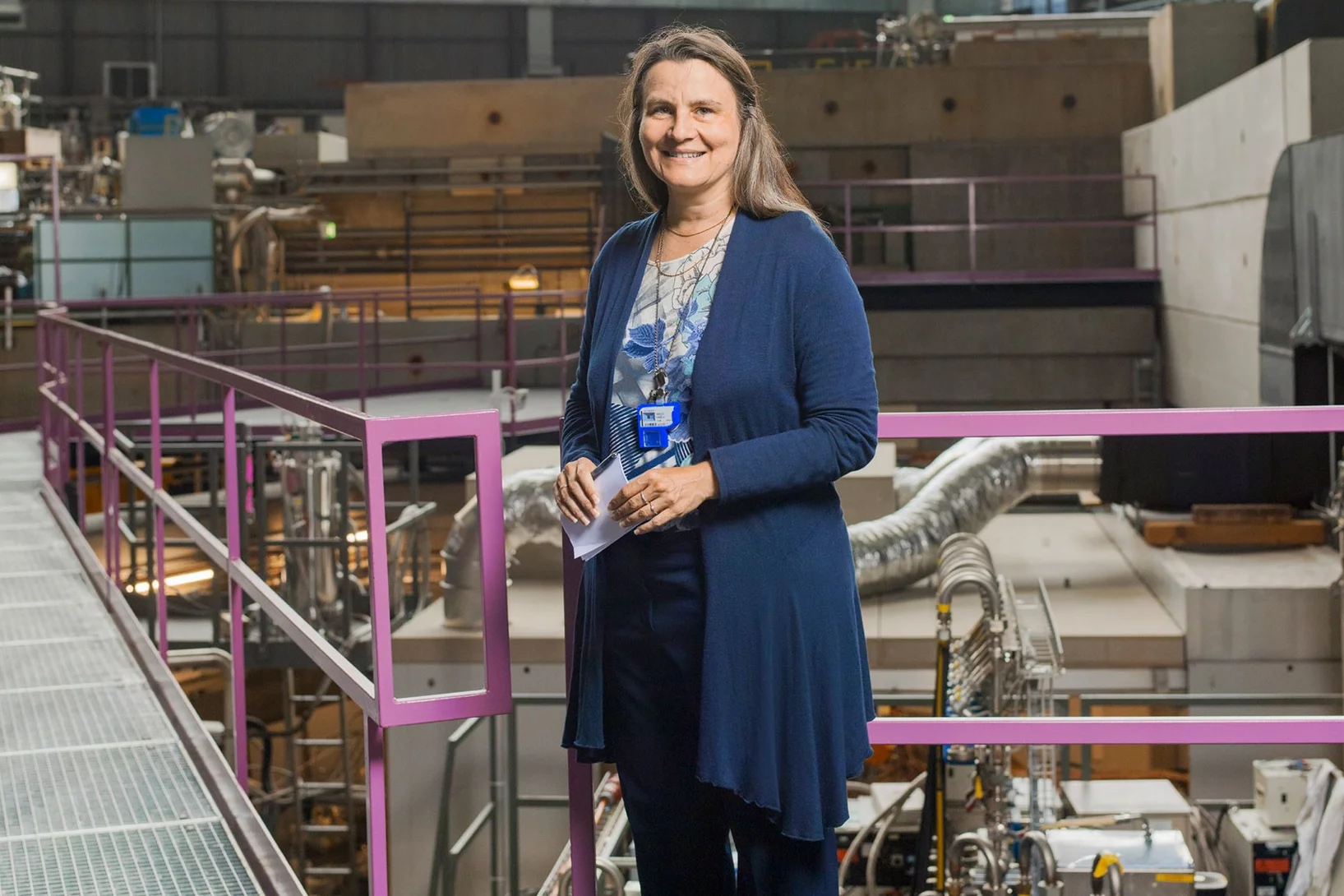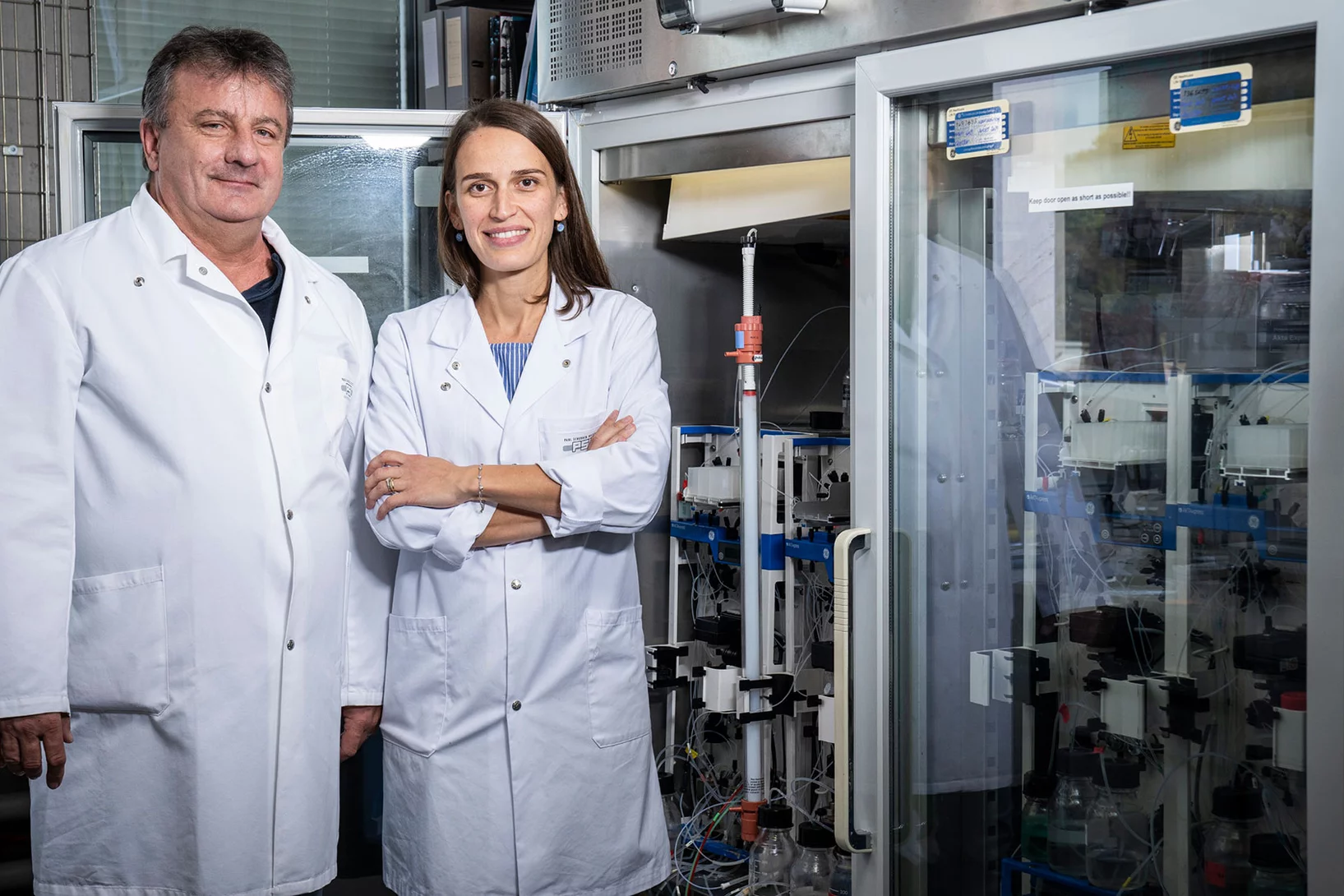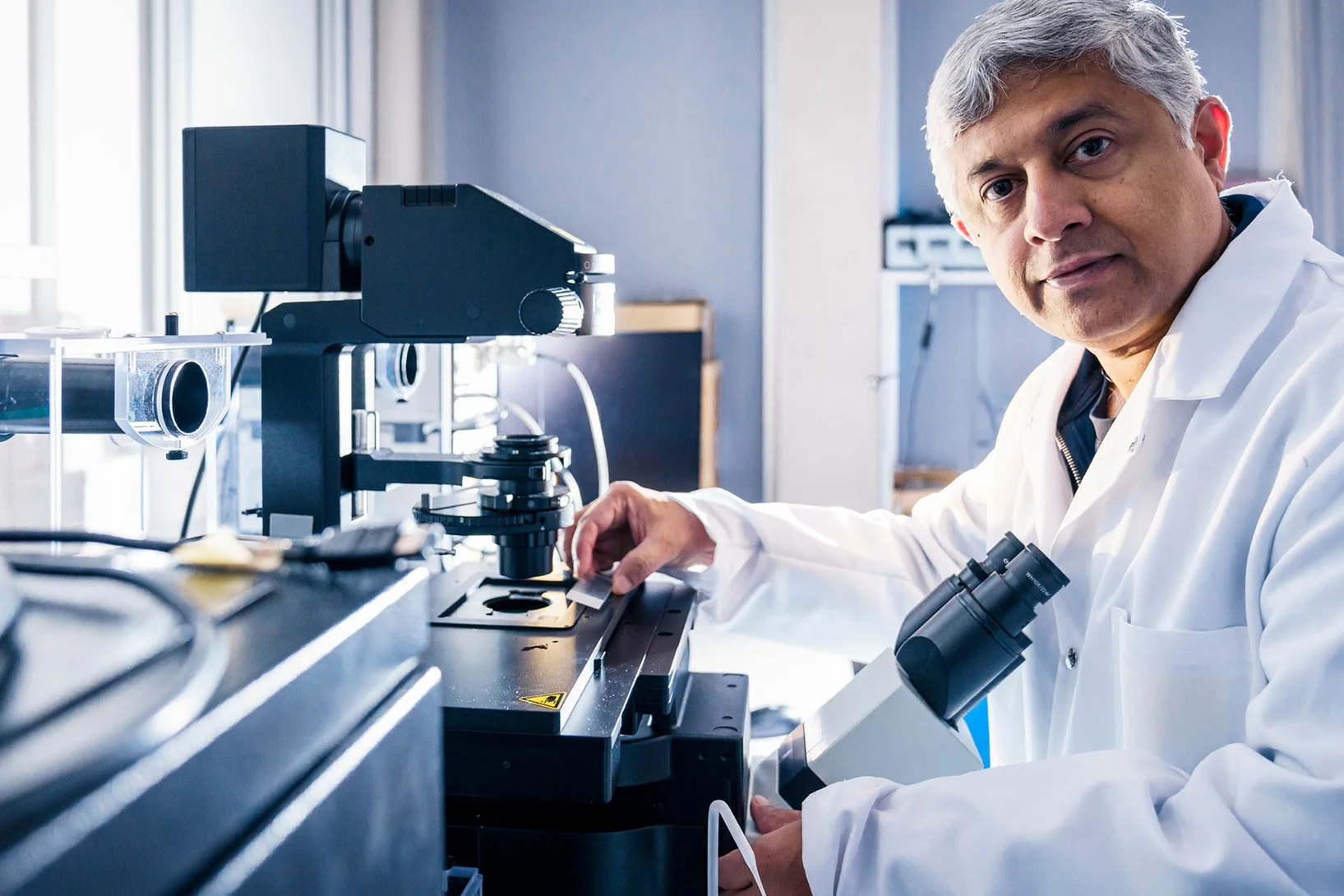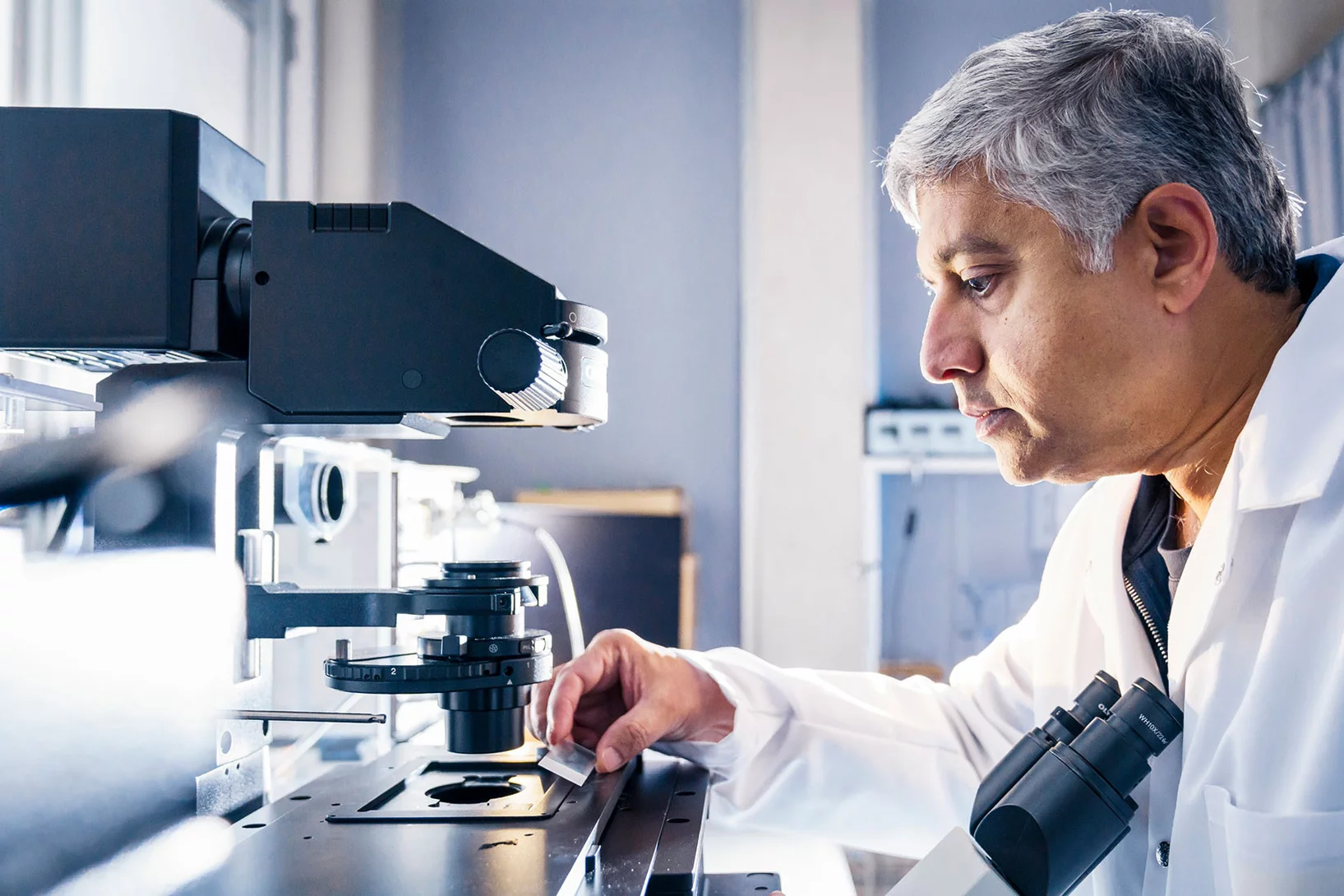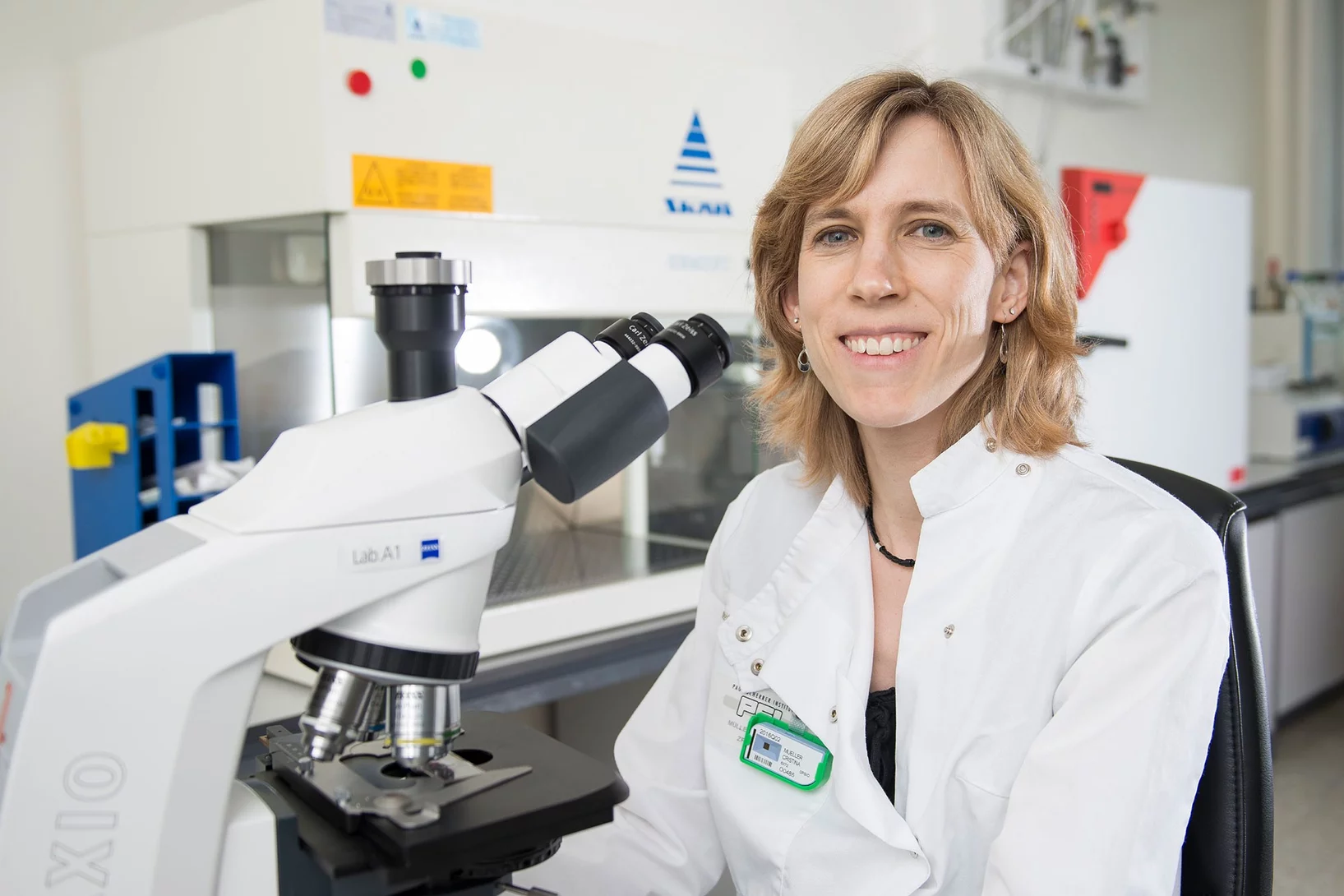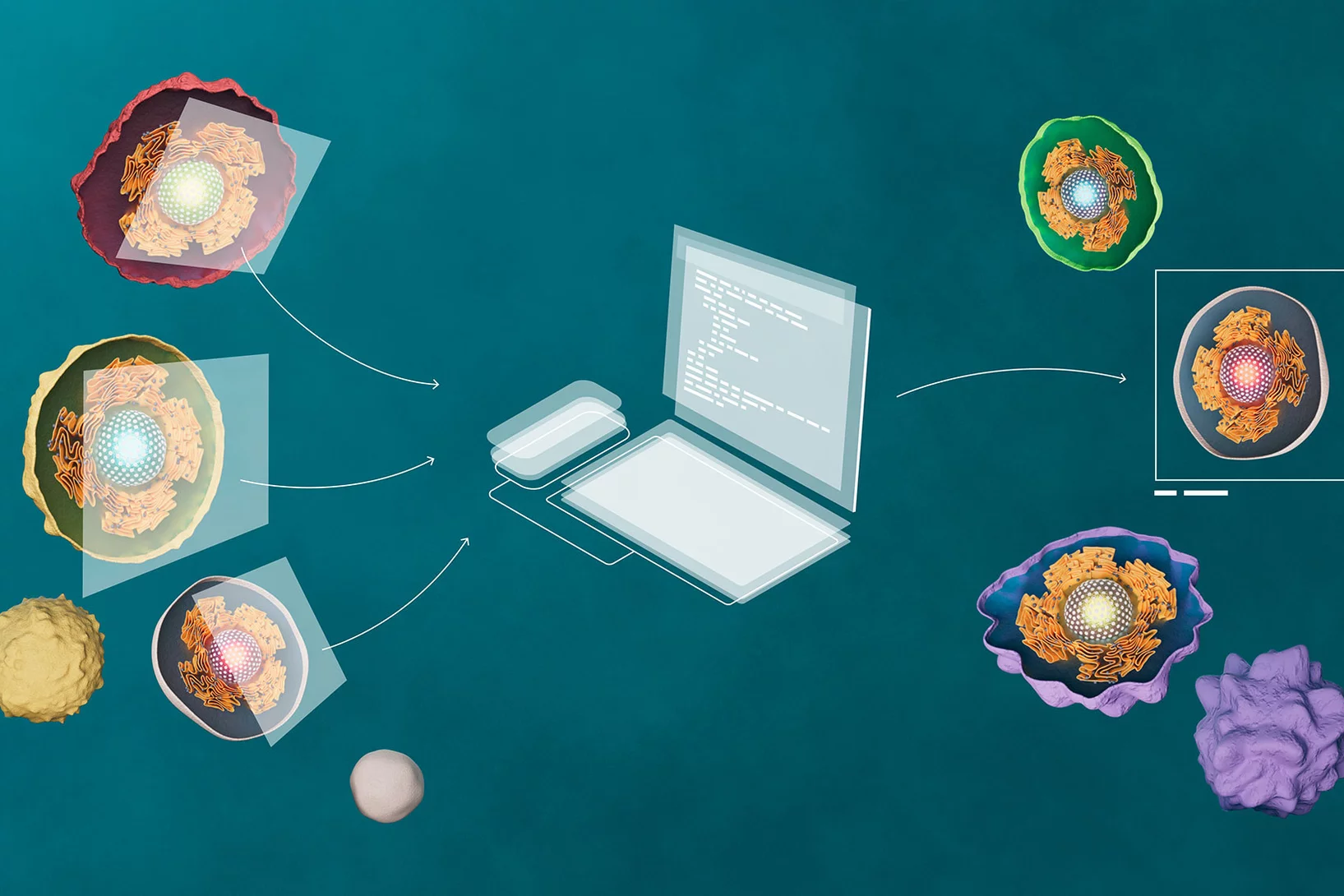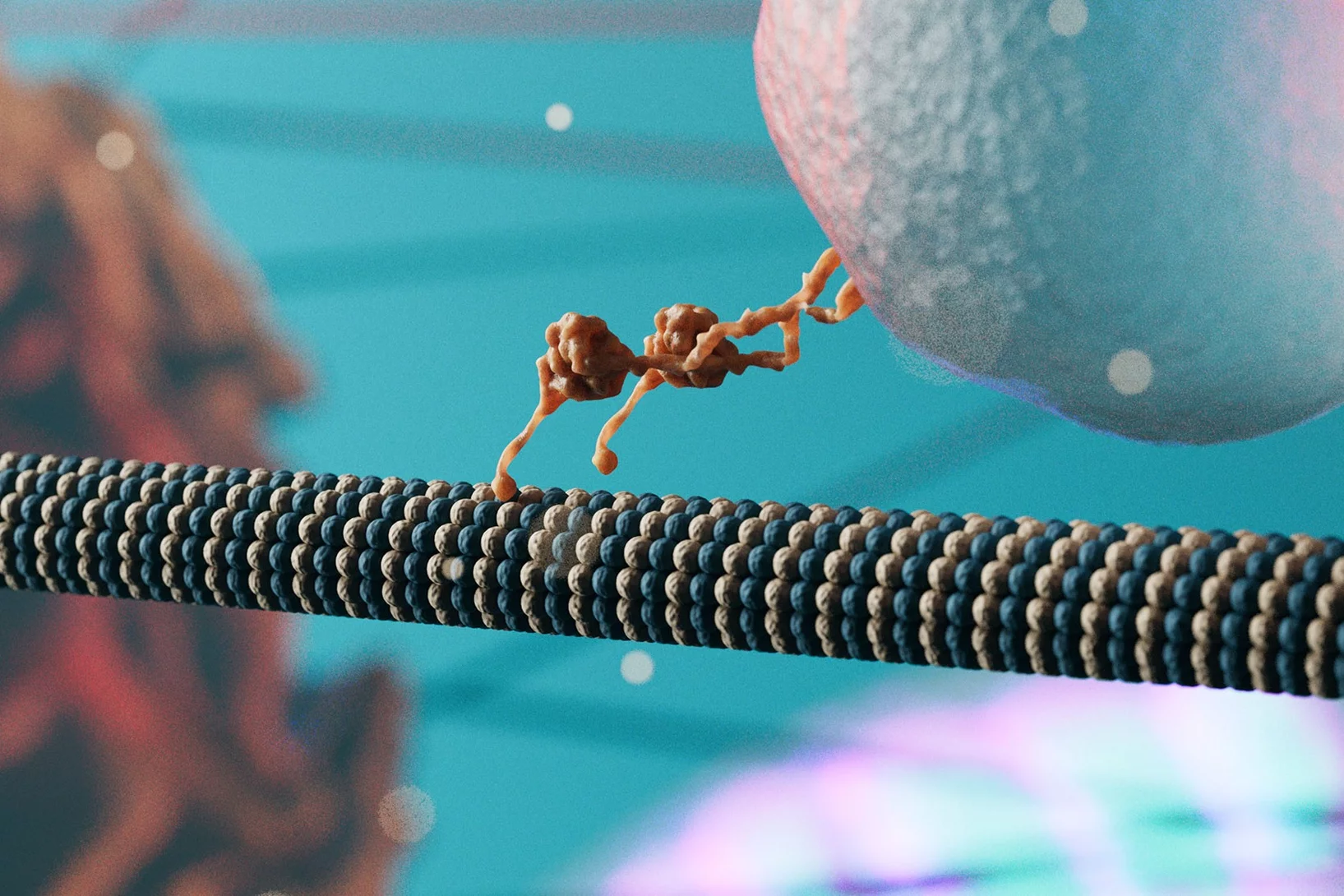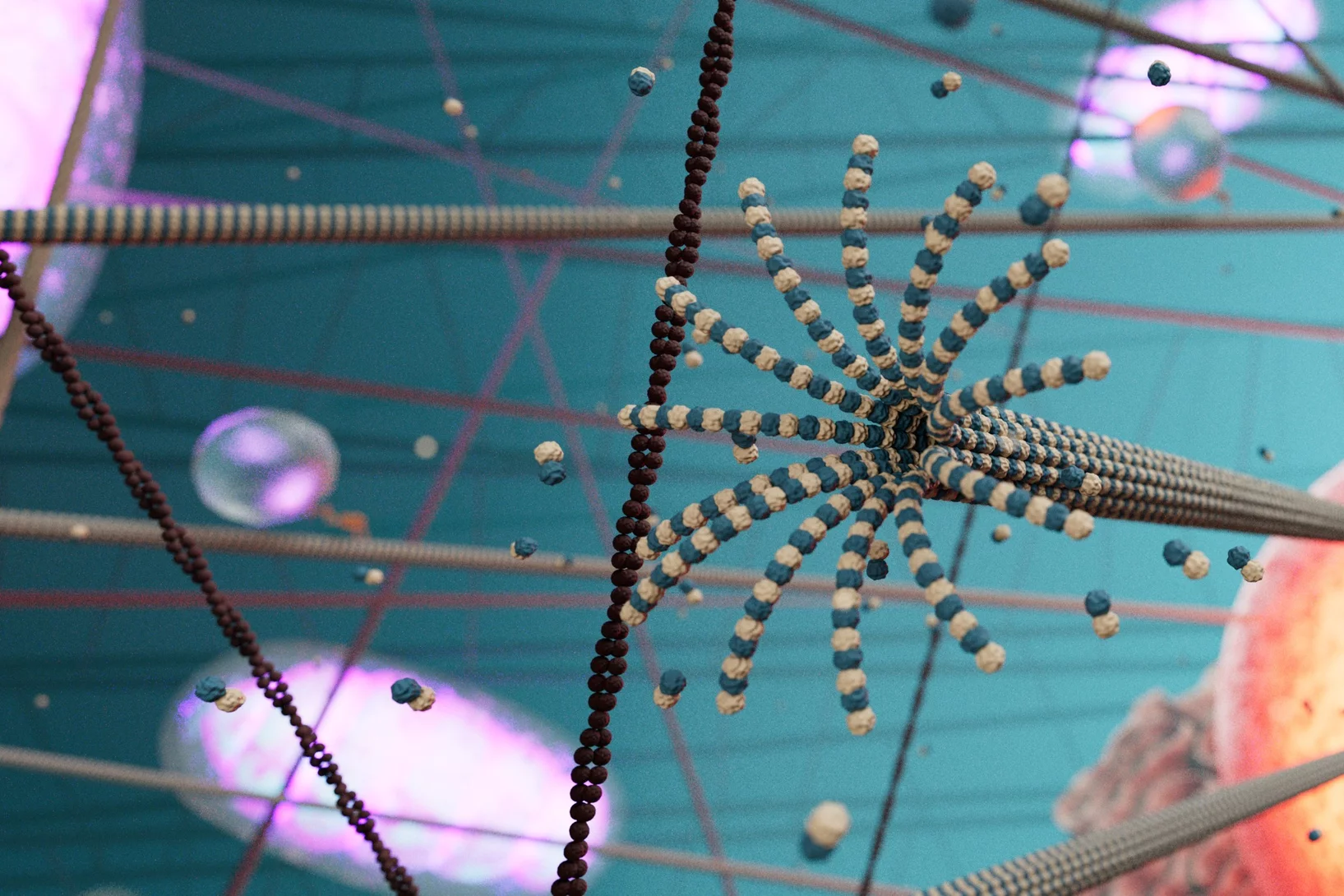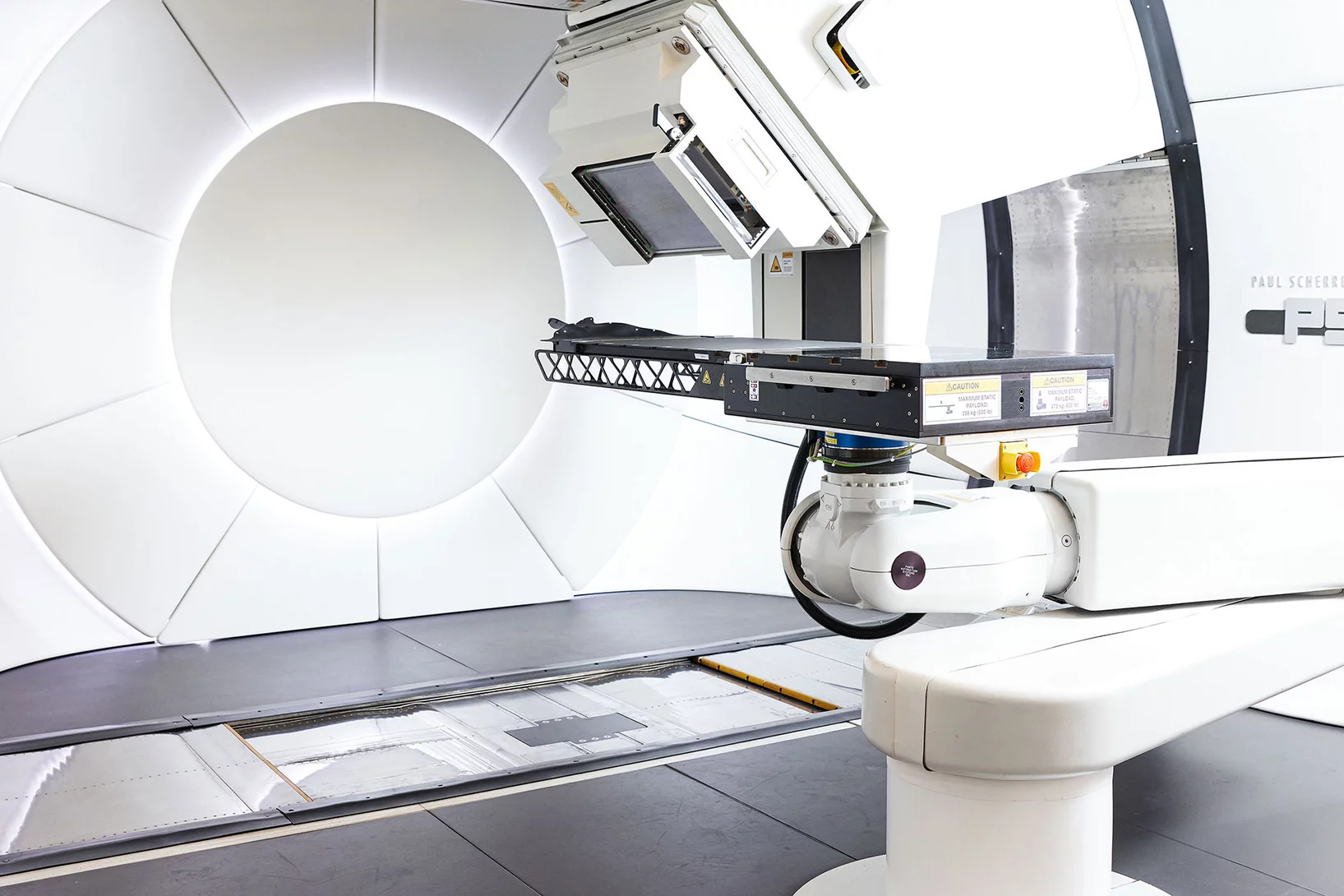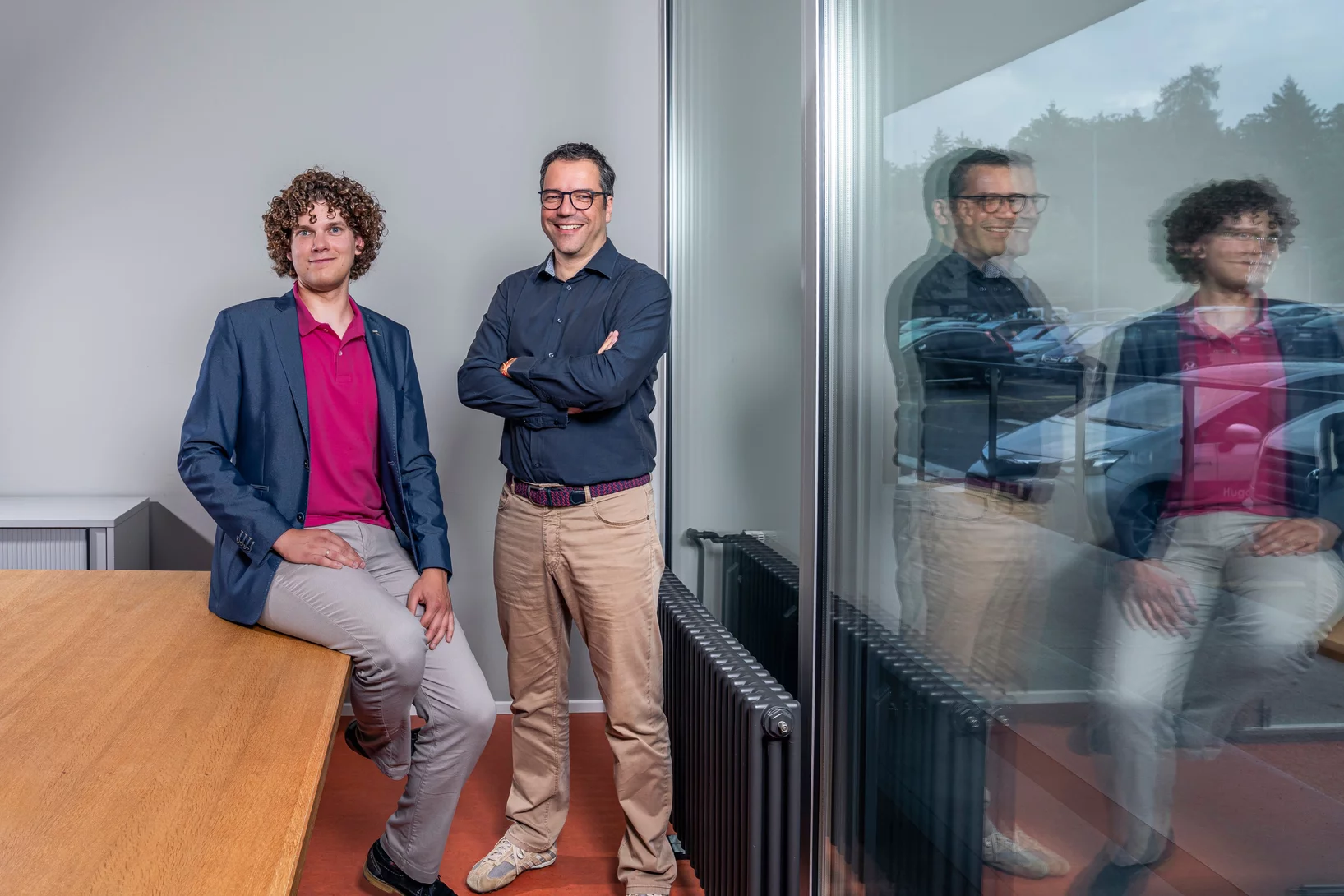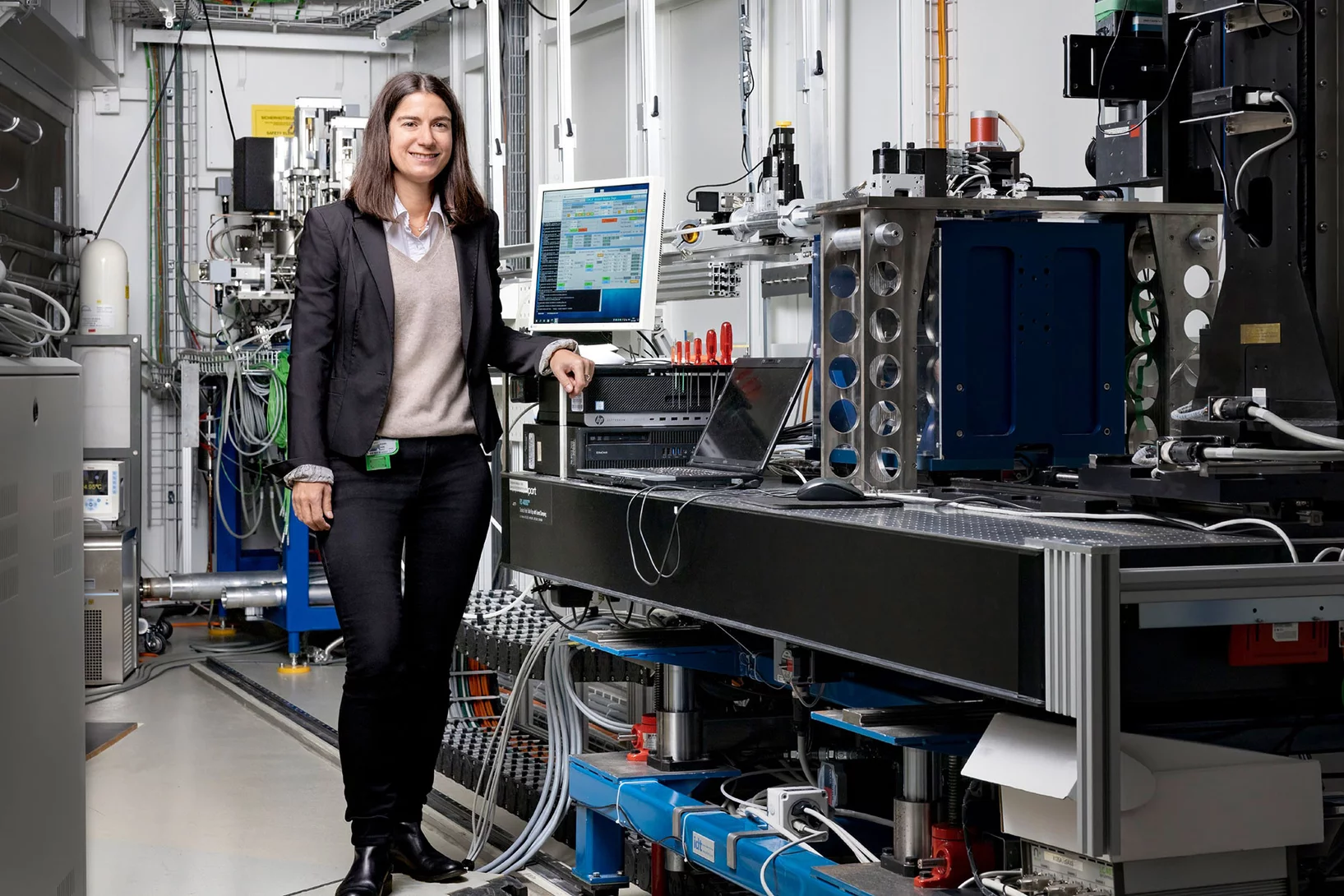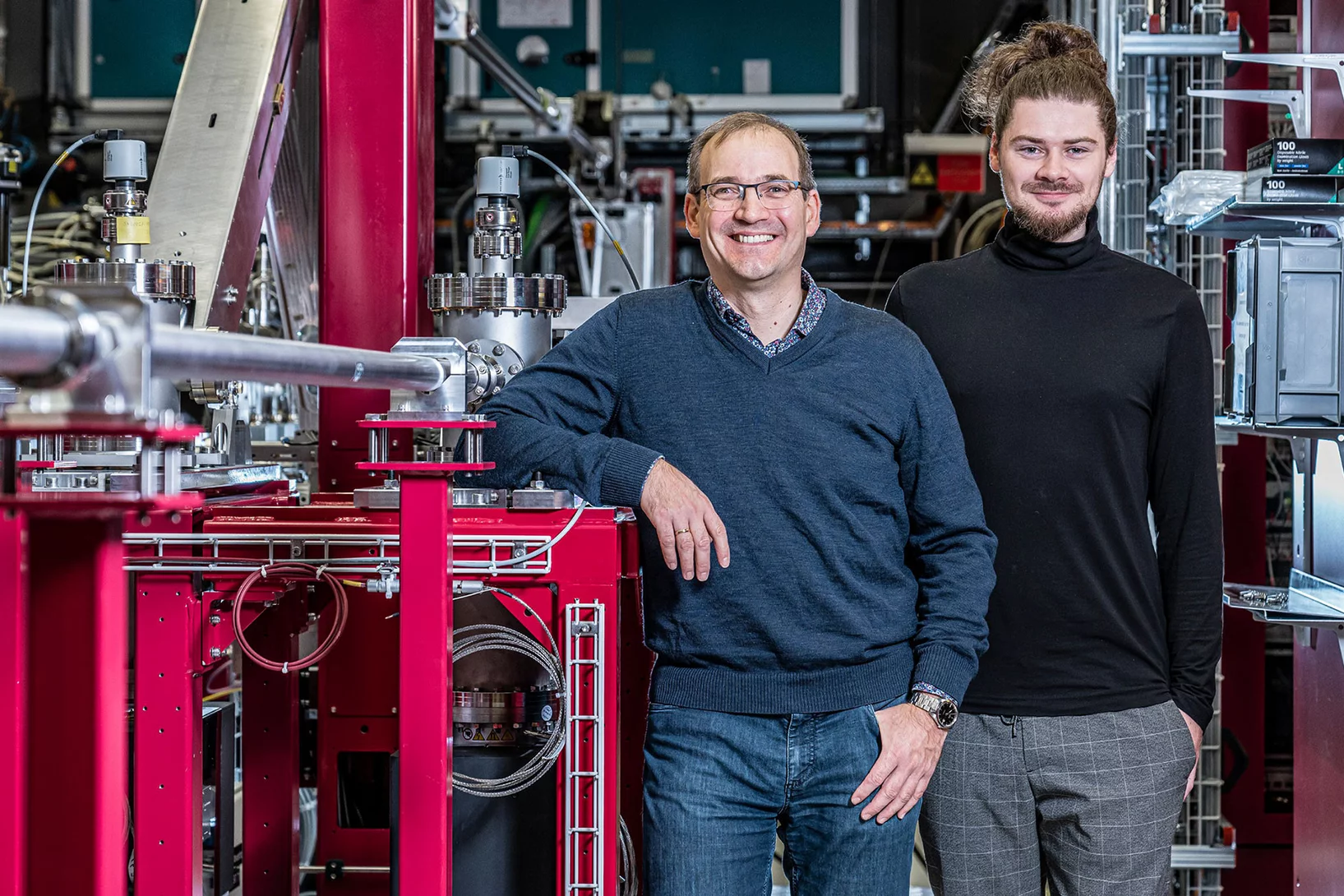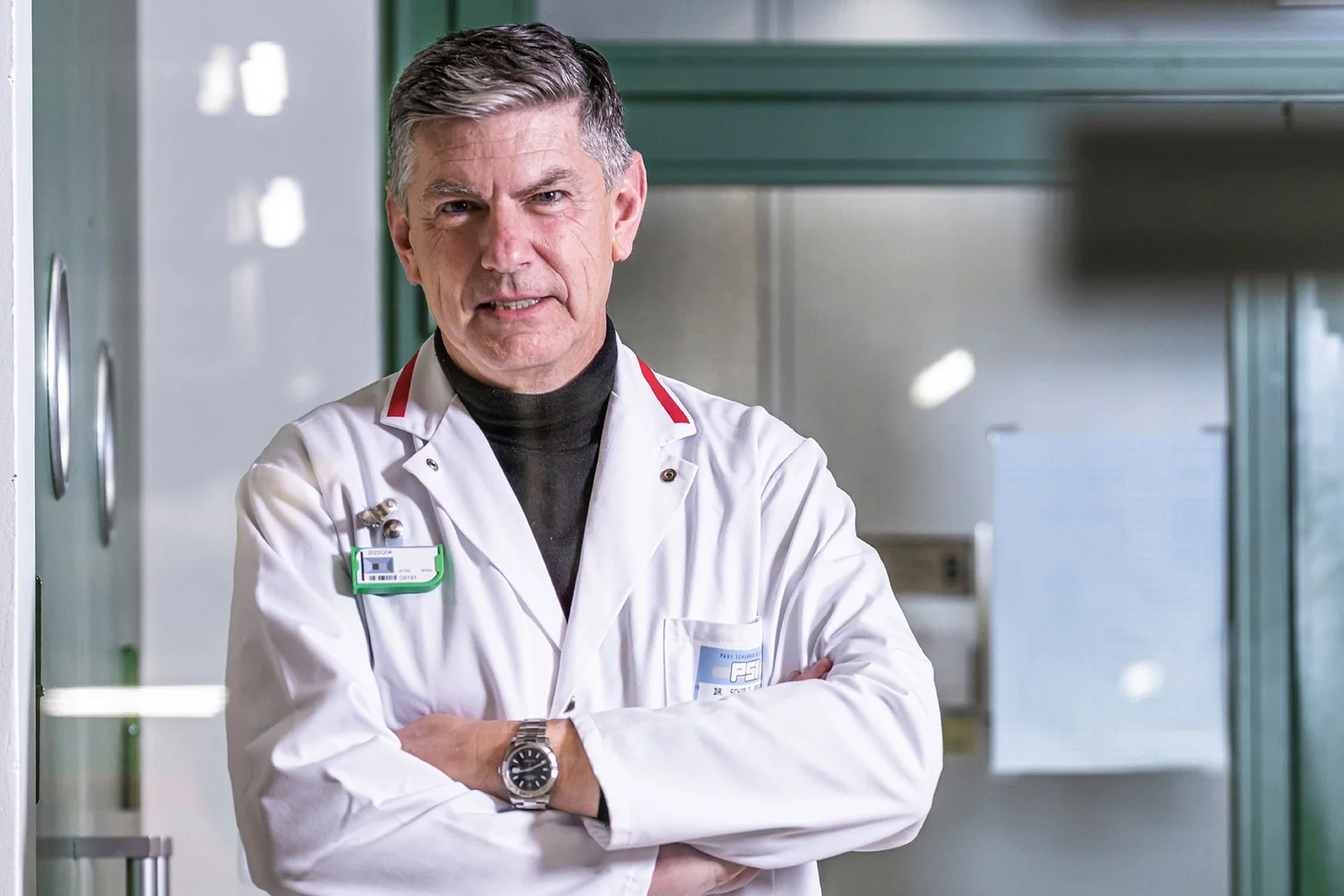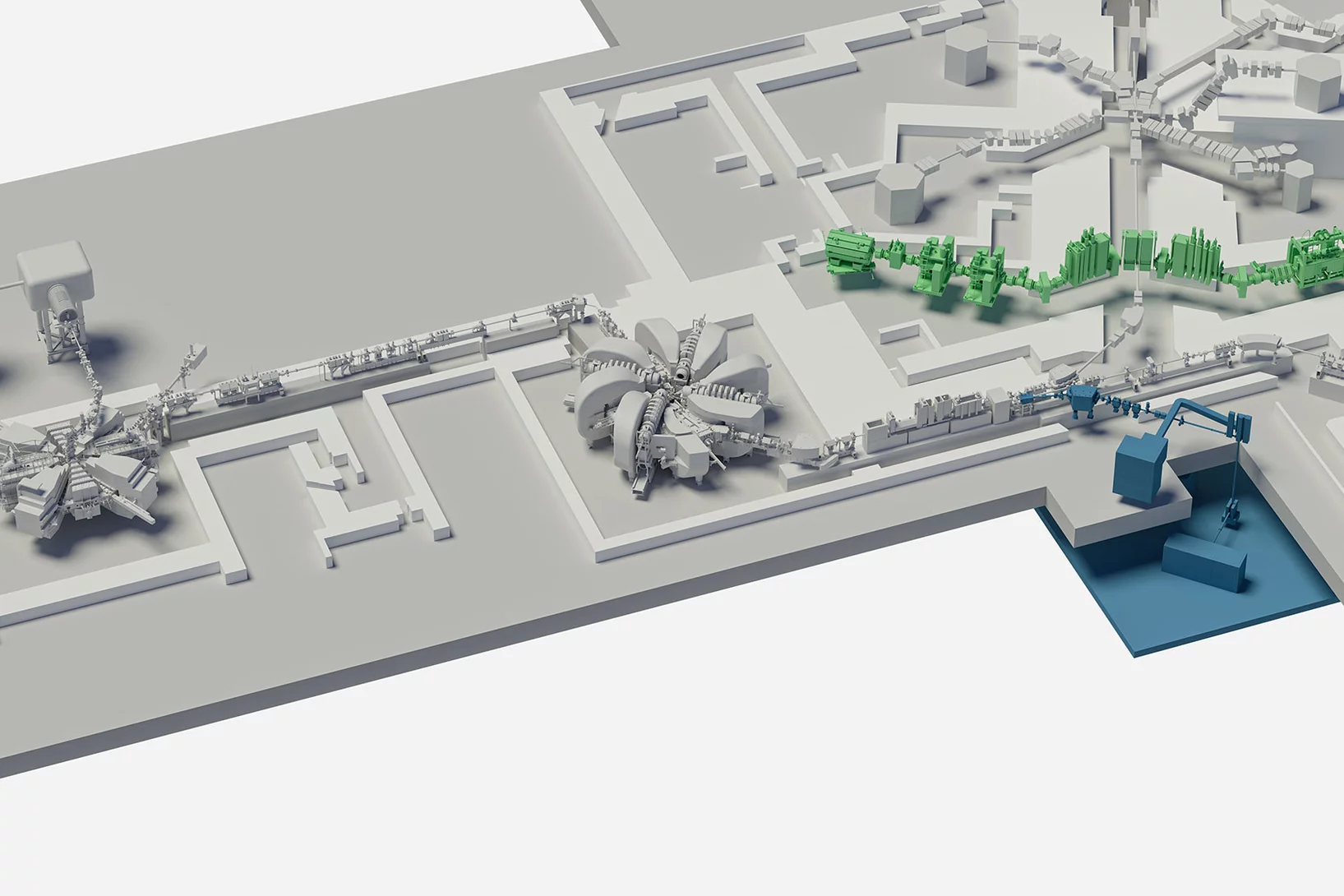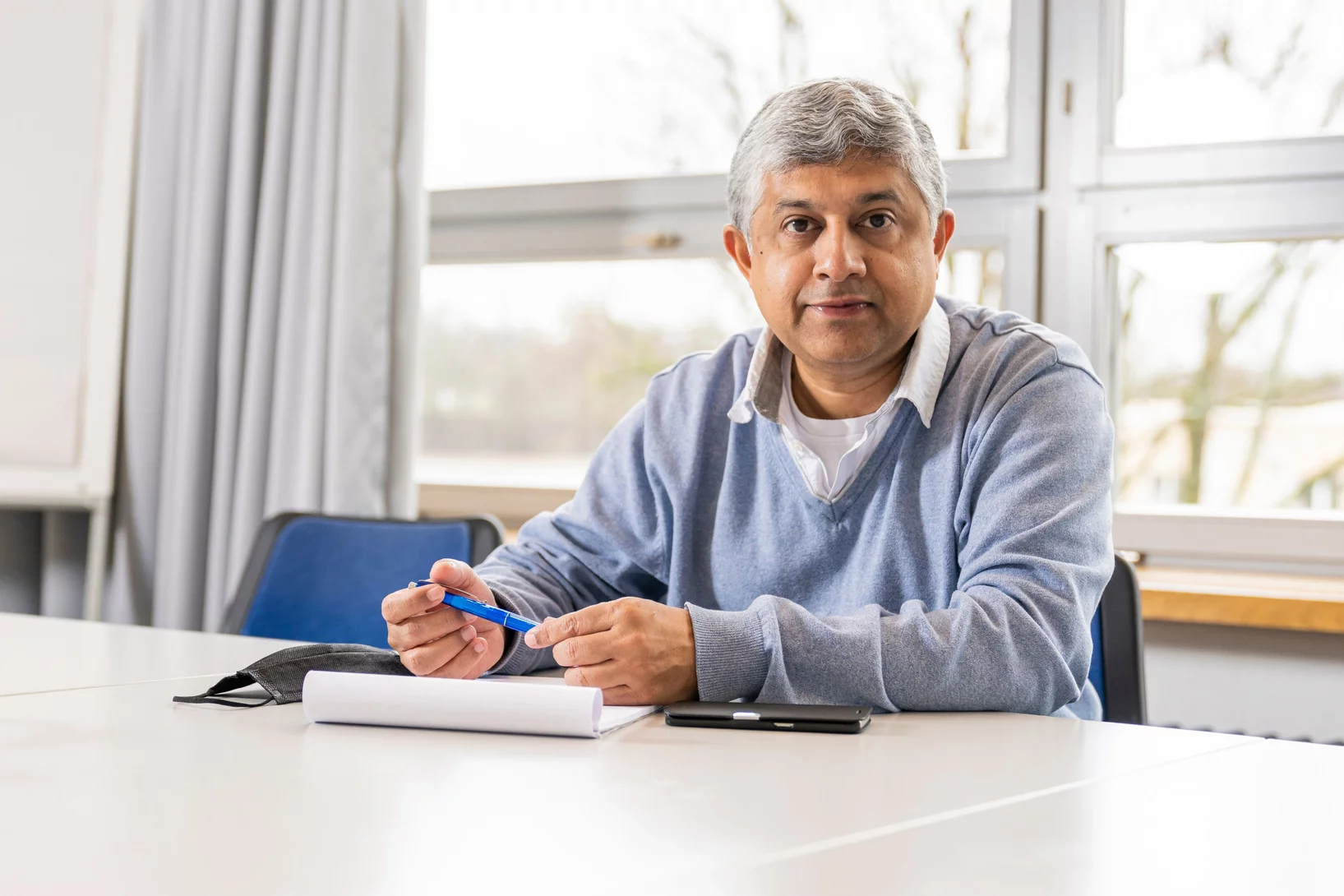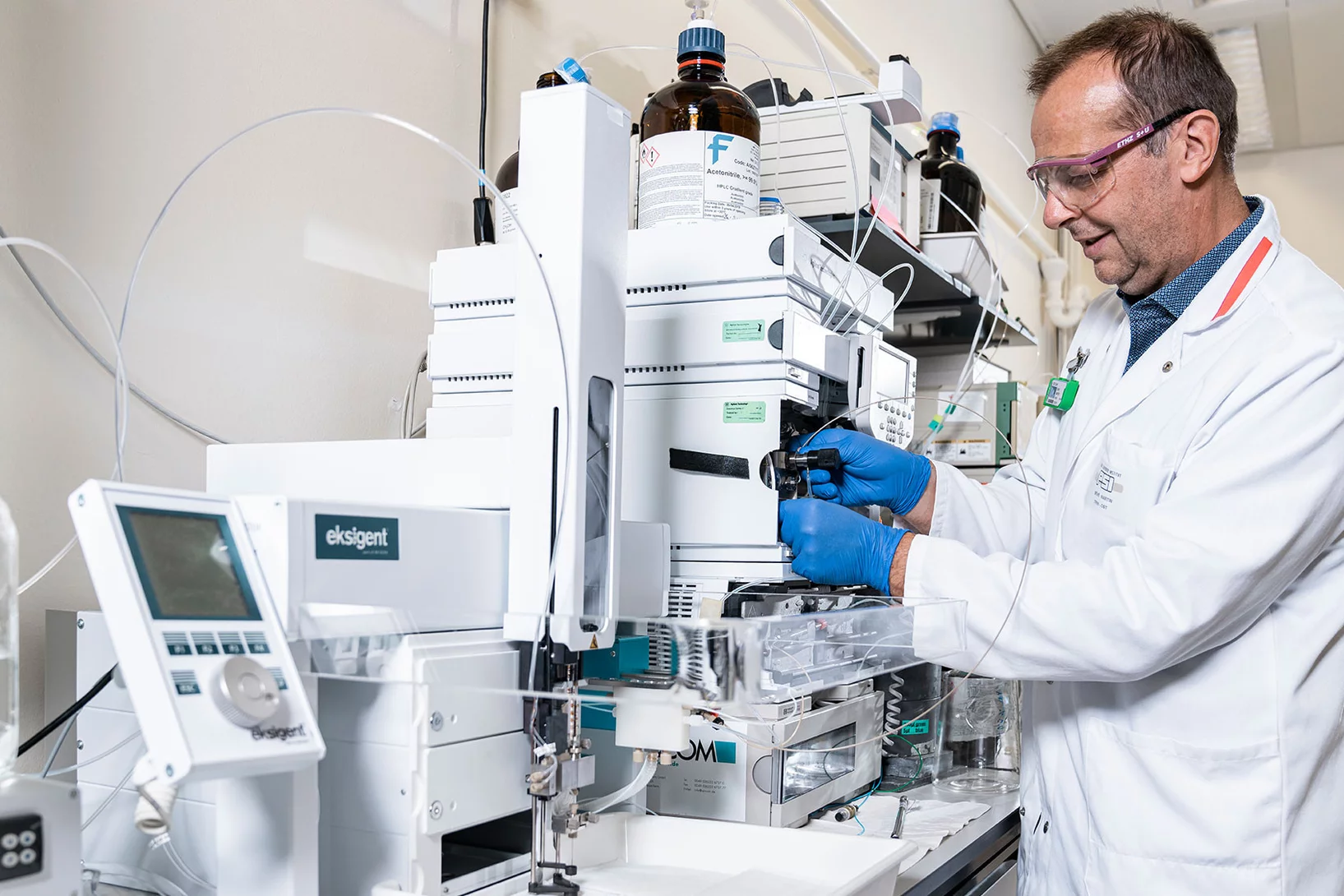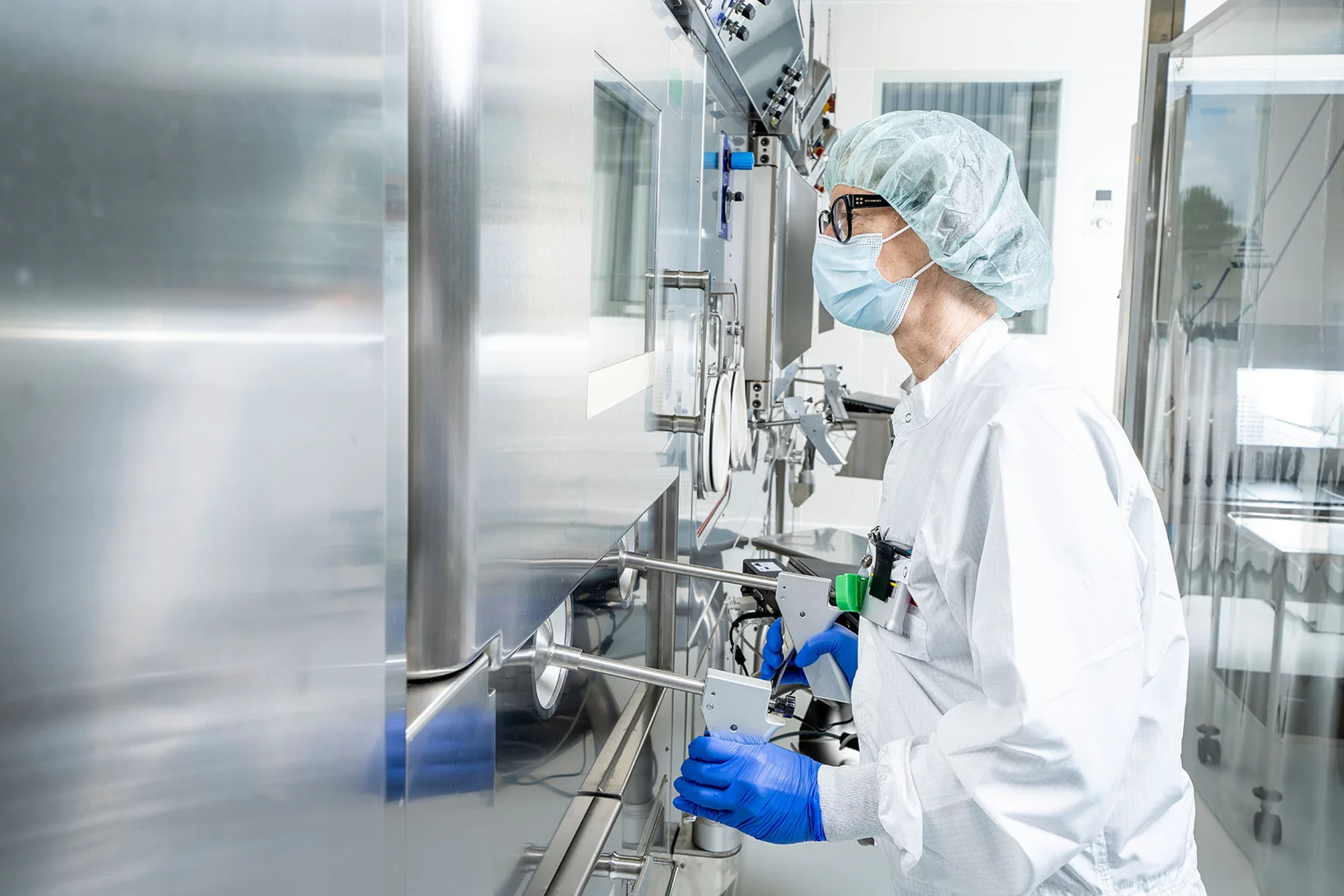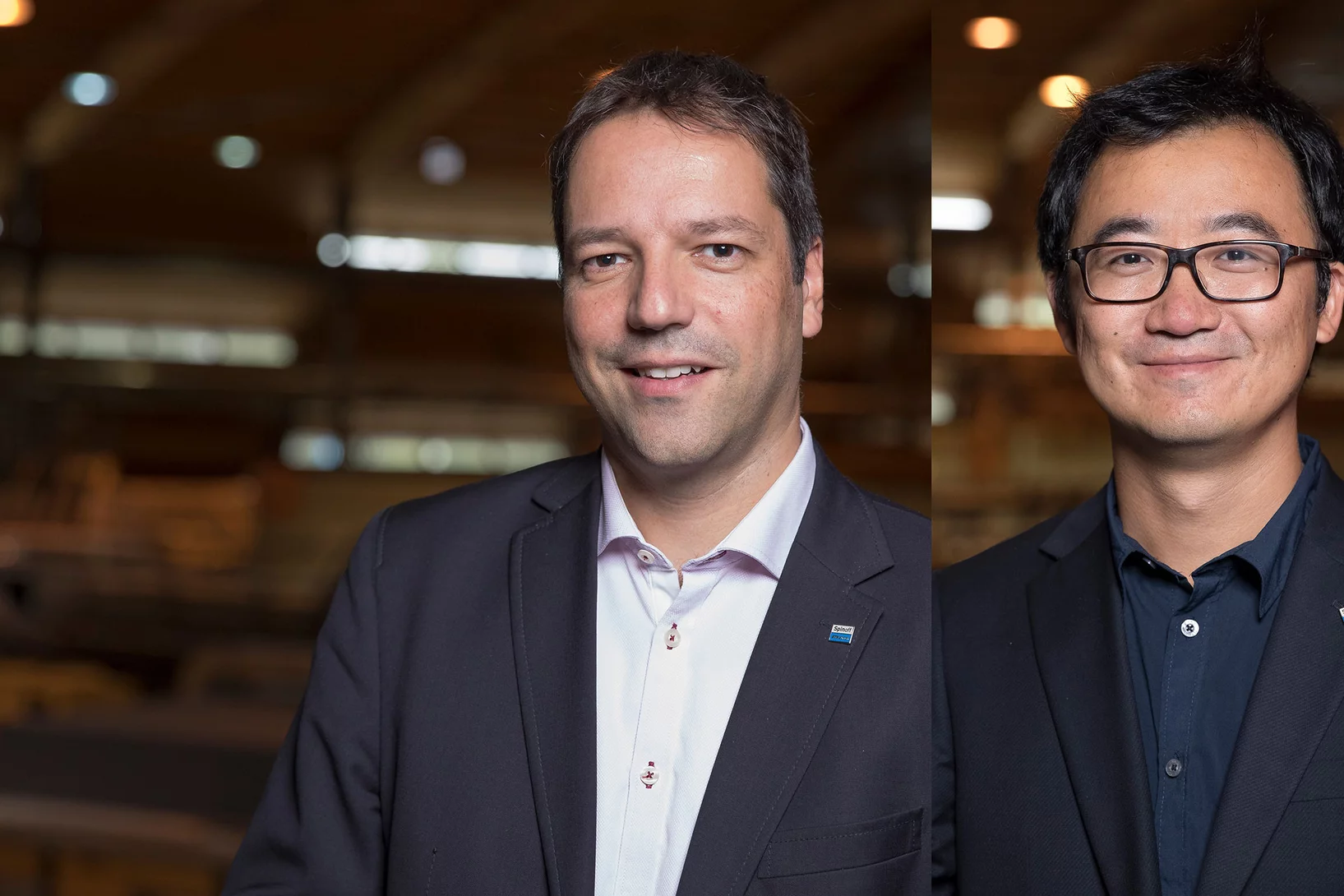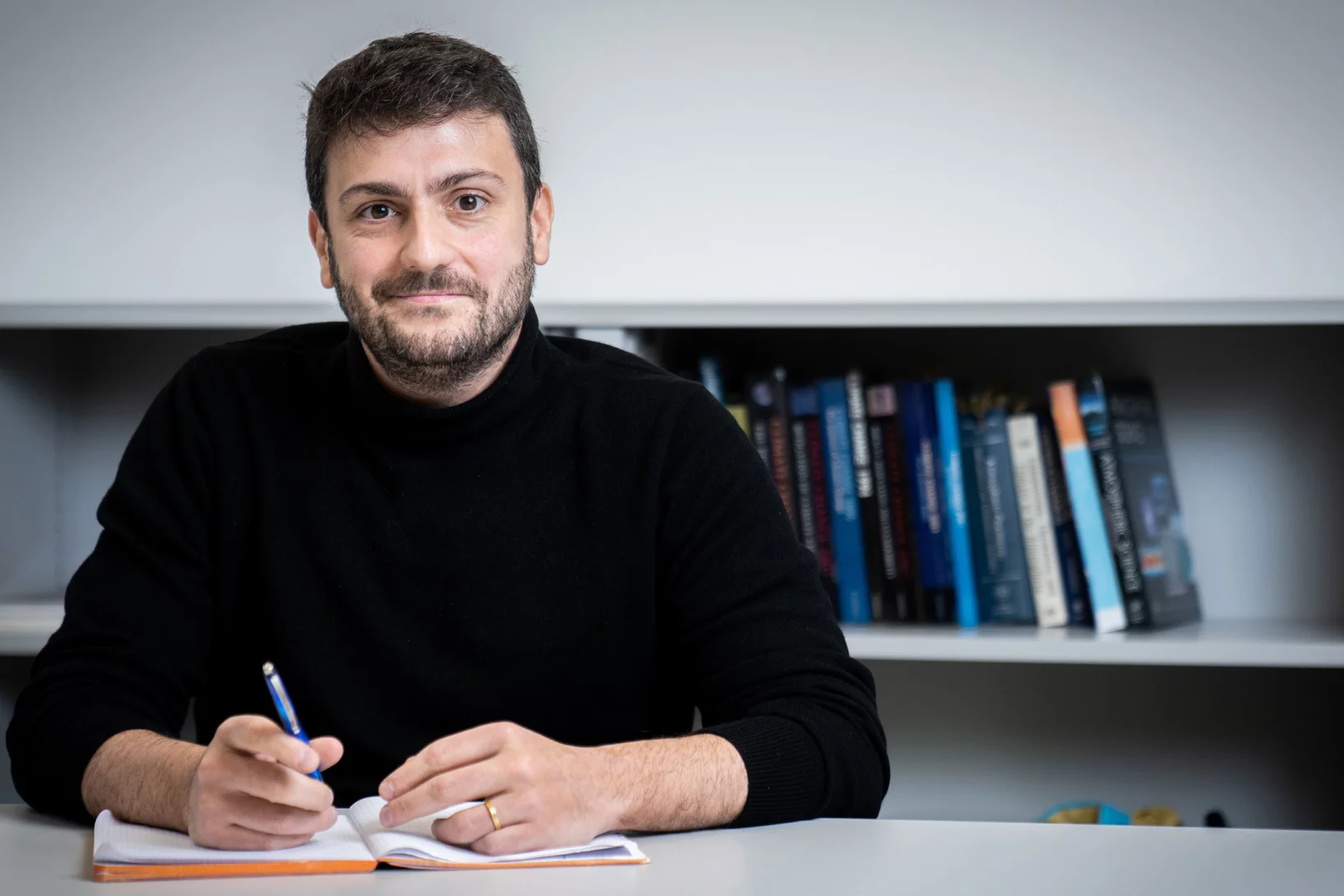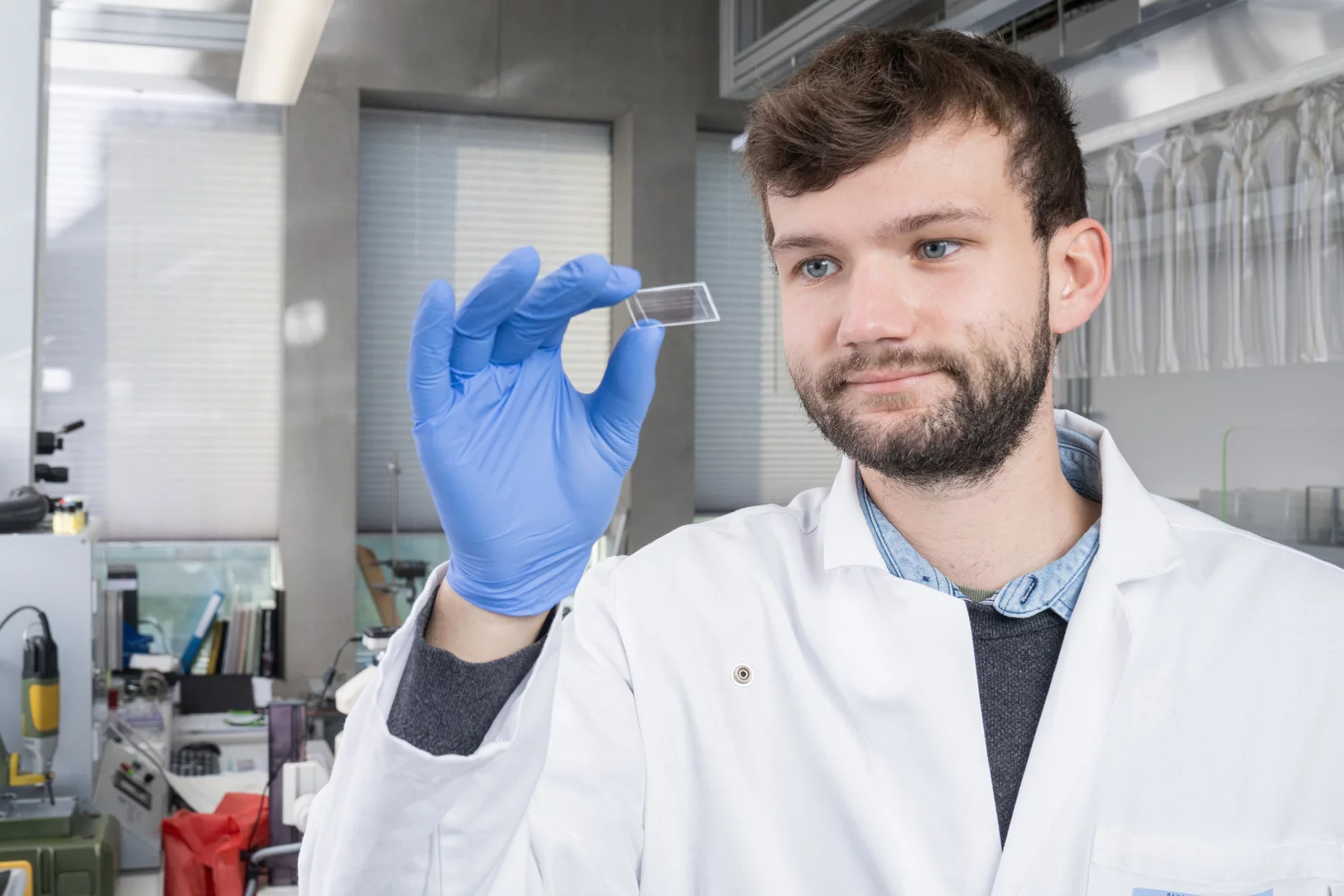Getting to the roots of a global health problem
Imad El Haddad analyses the chemical composition and health impacts of particulate matter at the Center for Energy and Environmental Sciences of the Paul Scherrer Institute PSI.
On the way to light-controlled medicine
PSI researchers have elucidated the structure of special photoreceptors.
Breast cancer classification using AI
Researchers at PSI and MIT are developing a new approach, which combines imaging and artificial intelligence to improve the staging of breast cancer.
Protein droplets likely don’t cause Parkinson’s
Study deepens our understanding of neurodegenerative diseases linked to protein aggregation.
New association brings medical practice and research together
The Association for Medical Research and Innovation in the Canton of Aargau was founded on 3 June 2024.
A 40-year success story: Protons against eye cancer
In March 1984, people were irradiated at PSI for the first time against a rare but very malignant type of cancer: They had a tumour in their eye.
New nuclear medicine therapy successfully tested
A promising radiopharmaceutical against metastatic neuroendocrine tumours – developed at the Paul Scherrer Institute PSI – has been successfully tested.
Cause of clogged hypodermic needles discovered
Researchers at PSI and the ANAXAM technology transfer center have found the cause of clogging in prefilled syringes.
„IMPACT is very important in terms of international competition“
Daniela Kiselev talks about the upgrade planned at PSI's proton accelerator facility.
New possibilities for a healing toxin
PSI researchers discover a surprising mechanism that could broaden the spectrum of therapeutic uses of botulinum toxin.
Enabling early detection of cancer
PSI researchers develop a fundamentally new method for early detection of cancer.
Reprogramming tissue mechanically
Scientists at PSI have used mechanical stimuli to turn connective tissue cells into stem-cell-like cells and transplanted these into damaged skin tissue. This speeds up the regeneration of the skin and the healing of wounds.
Development of a Radioligand
Cristina Müller and her team are looking for a new means of visualising and further investigating the SARS-CoV-2 entry receptor using PET imaging techniques.
Grasping diseases by the roots
PSI researchers take pictures of cell nuclei using modern high-resolution imaging techniques, employ learning algorithms to comb through these data, and thus can more reliably identify anomalies.
More than just a support structure
Each cell in the human body contains a cytoskeleton. Contrary to what the name suggests, the cytoskeleton is far more than just a support structure.
Immerse yourself in the cytoskeleton
The cytoskeleton is a little marvel. Probing it promises to reveal, among other things, new possibilities for cancer therapy.
A Swiss premiere Proton radiotherapy to treat oesophageal cancer
On 15 August 2023 a patient suffering from oesophageal cancer was treated with proton beam therapy at PSI – for the very first time in Switzerland.
Earlier detection of breast cancer
3D X-rays can improve breast cancer screening.
Fighting tumours down to the last cancer cell
A project that promises to improve the chances of survival for prostate cancer patients has received 2 million Swiss francs in funding.
X-ray imaging after heart transplantations
Synchrotron light can be used in follow-up after a heart transplant to determine whether the body may be rejecting the new organ.
Using light to switch drugs on and off
PSI researchers record a molecular film of a cancer drug fitted with a photoswitch. This opens new insights for drug developers.
Radionuclides for personalised medicine
TATTOOS is part of the upgrade project IMPACT. Roger Schibli explains its importance for the future of cancer treatment.
A two-part upgrade for the proton accelerator
A two-part upgrade is planned for HIPA starting in 2025. Preparations are already under way.
Paul Scherrer Institute and Apollo Health Ventures Launch Focal Biosciences
Newly established Focal Biosciences will focus on bringing together leading experts and scientific discoveries to harness cellular reprogramming in the fight against common age-related diseases.
Making tumour diagnosis kinder to kidneys
Improved method thanks to a molecular trick
Swissmedic grants operating licence for new radiopharmaceutical production facility
From research to production – the new pharmaceutical lab at PSI supplies neighbouring hospitals with novel cancer drugs.
Nominated: High-precision X-rays of breast tissue
Employing high-resolution X-rays to diagnose breast cancer – PSI researchers nominated for the European Inventor Award.
Asthma: diagnosis in a single breath
PSI is involved in the development of a breath test that can be used to diagnose asthma. Imad El Haddad explains why such a test could be extremely useful – especially for children.
New, better coronavirus rapid test
The test identifies different virus variants and improves disease prognosis.
The power of protons
This gallery presents five people who have been treated at the PSI's Center for Proton Therapy.



